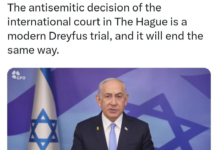Abdelbari Atwan says the Syrian opposition is increasingly in disarray as Bashar and his supporters become increasingly united.
On Tuesday, the foreign ministers of the remaining (down to eleven from 114) Friends of Syria nations held a meeting in London. They must have considered not only where they can go with their mission in the light of various diplomatic and military developments, but also if it is still appropriate for them to operate under their current moniker.
To explain: there are actually two international groups who call themselves friends of Syria. The first supports the Assad regime and consists of the Russian Federation, China, Iran and Hezbollah; the second supports the opposition and consists of Egypt, France, Germany, Italy, Jordan, Qatar, Saudi Arabia, Turkey, the United Arab Emirates, the United Kingdom and the United States of America.
The two camps have experienced opposite fortunes. The first has grown into a cohesive and increasingly influential diplomatic force; the second has gradually weakened, losing 90 percent of its membership and all of its sense of direction.
Those who back the Assad regime seem to be in full agreement while the group which met in London was still reeling from the shock announcement by Saudi Arabia that it would not take up its two year seat on the UN security council because of its disappointment with the West in its handling of the Syria crisis.
Prince Bandar bin Sultan, the Saudi intelligence Chief, told the Wall Street Journal that his country wished to send a stern message to the US that its sluggishness over Syria may lead to a decline in cooperation between the two countries.
Opposition conflicts
Subscribe to our newsletter and stay updated on the latest news and updates from around the Muslim world!
Saudi-US relations aside, the Syrian conflict is also causing rifts between Arab nations which are meant to be on the same side. There is a semi-public war between Saudi Arabia and Qatar, for example, who both support Islamist groups within the opposition which are sometimes in conflict with each other.
The Saudis and Qataris are also at odds over Egypt where the former support the military junta led by Abdel Fattah al-Sisi, while the state of Qatar insists on the return of President Mohammed Morsi and supports the Muslim Brotherhood.

To return to the London meeting: the aim here was to persuade the “moderate” Syrian opposition to participate in the Geneva Conference, which offers the “best opportunities” available to it, according to UK foreign minister, William Hague, speaking during a press conference at the end of the meeting.Hague told the Syrian National Coalition (SNC) delegation that there can be no military solution to the crisis, and that a peaceful political solution in Syria cannot be achieved without the participation of the opposition.
Our question to Mr Hague – who was one of the leading hawks when military intervention looked likely – is how he defines “moderate” and what is he going to do about the non-moderate, radical Islamic groups which now constitute more than 80 percent of the number of fighters battling the Assad regime?
Geneva II
Most of these Islamic/jihadi groups have announced that they will not accept the SNC as representing their views at any peace conference. Worse still, elements among the “moderate” Free Syria Army have also withdrawn its support from the SNC and de-recognized its legitimacy. Some have joined forces with the jihadis.
The final statement by foreign ministers attending the London meeting included the following phrase: “President Al Jarba attended lunch and made clear, as in New York, his support. We are as clear as he is that Assad has no part in the future of Syria.”
Strange words indeed: how will there be a political solution if a pre-condition is the departure of President Al-Assad? And who has crowned Ahmad al-Jarba with the Presidential title without elections?
President Al-Assad has made it clear in recent interviews that he will run in next year’s presidential election.
Assad’s position has been completely transformed – more by unintended consequences of foreign and opposition developments than by his own efforts. However, he is canny enough to see that foreign priorities on the ground in Syria have changed and that they now share an understanding of the need to counter the growing strength of jihadis among the opposition. Here, Assad and the US itself are on the same page and will likely be forced to co-operate on this issue.
President Al-Assad has the satisfaction of knowing that his regime can be represented at Geneva 2 while neither the Friends of Syria nor the opposition itself know who will represent the other side. This is the predicament for the West and all who seek an end to the bloodshed in Syria.
In effect, we are back to square one… meanwhile the “Friends of Syria” are rapidly being re-branded “the London 11” in communiques emanating from the British Foreign and Commonwealth Office.




















